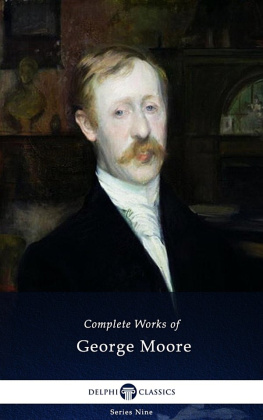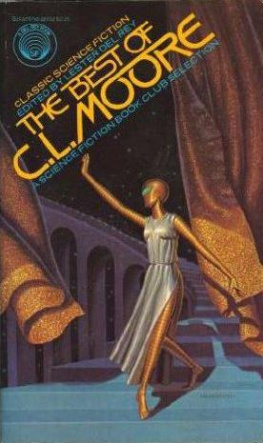CHAPTER XII. DOMESTIC OCCURRENCESCAMP AT SANDGATE, IN KENTCONFERENCE WITH THE MINISTERS, AND THE RESULTFERROL.
THE return of General Moore, cured of his wound, and preserved from the dangers he had been exposed to, was the greatest consolation possible to his dying father. Doctor Moore was on the verge of old age, and affected with an incurable malady of the heart. He had retired to Richmond, with his wife and only daughter. The arrival of his eldest son, covered with honour, shed a gleam of happiness on his last days, before he descended into the grave.
He was still able to take airings in an open carriage; and to defend himself from the frosts of winter, he always wore that sable pelisse which was the gift of the Grand Vizir to his son. He was tended by his wife, who through life performed her duties to her husband, her children, and her neighbours, with that constant assiduity which is exerted by many in the pursuit of interest and pleasure. She appeared to her family and to her friends to have been created devoid of selfishness.
In the latter period of his life Dr. Moores thoughts were much turned to the contemplation of a future state, in which he firmly believed. His decay was gradual, and with little suffering. One day, after questioning me earnestly respecting the opinions of two eminent physicians whom he had consulted, and expressing a wish for the trial of more potent remedies, he said, James, you may wonder that at my age, and with my infirmities, I should be desirous of protracting life; but I assure you, in truth, that at no period of my youth was I ever happier.
Not many weeks after this, he expired, in the presence of his wife, his daughter, and his eldest son.
By his will his property was bequeathed, ultimately, to his six children, in divisions proportioned to their circumstances. The widows jointure being necessarily moderate, the General pressed his mothers acceptance of an additional annuity from himself; but he could only prevail upon her to receive one half of what he urged. These were private concerns, which are noticed briefly, Moores life being involved in public affairs.
The British nation, with the inconstancy inherent in the people, had first been clamorous for war, and latterly for peace; and that of Amiens had been concluded, with little expectation of its permanency; for the empire of France had been usurped by Napoleon,whose character was then only indicated, but in a few years became fully developed. However extended that empire had already been, he was infatuated with the frenzy of acquiring boundless dominion; and no neighbouring state, indeed none in the world within his reach, were unmolested, or uninsulted by his arrogant demands.
Mr. Addington {1} , our Prime Minister, had penetrated into his designs, yet, from motives of economy, reduced both the army and navy. But Napoleon, uncontrolled by a House of Commons, augmented_ his army; and organized his law of conscription to convert the soil of France into a hot-bed of soldiers.
During the precarious cessation of hostilities our military affairs were not neglected by the Duke of York. He sent Moore to command at Brighthelmstone, where the Prince of Waless regiment of cavalry was stationed; and his Royal Highness signed the reports to him, like other colonels. On one occasion, the regular form not being observed, the proper information was obtained from the lieutenant-colonel, without animadversion upon the royal superior.
Moore was afterwards removed to Chatham, where a larger force was assembled, and he was frequently consulted by the Commander-in-Chief on military subjects. The Duke mentioned to him a design of enlisting some regiments of riflemen, a species of troops which had never been raised in this country. On which Moore observed, that our army was not so numerous as to admit of having enough of those for each detached force, which the nature of our warfare required. He, therefore, advised, that some good regiments should be practised as marksmen, with the usual muskets, and instructed both in light infantry manoeuvres, and also to act, when required, as a firm battalion. His Royal Highness approved of this idea, and requested him to form his own regiment on that plan; and as many of the men were unfit for these complex duties, he was empowered to exchange them for more powerful and active soldiers, selected from another battalion.
He then commenced this new discipline, and in a short time formed a regiment, which for celerity and expertness was admired by experienced officers. Other regiments, particularly a corps of young Highlanders, were disciplined in the same manner, and their utility was displayed in the subsequent war.
Moore, enjoying the confidence of the Commander-in-Chief, was thus engaged in improving the efficiency of the army; an employment by no means brilliant, but most useful to his country.
Bonaparte, whose insatiable mind was abhorrent to any continuance of concord with those around him, seized upon Piedmont, Parma, Placentia, Elba; and subjected the whole of Switzerland to his power during the peace.
The Continent, from terror, did not even remonstrate against these infractions of treaties and lawless conquests; but as he likewise grossly insulted and menaced Great Britain with invasion,. war ensued.
To fulfil his threat, a thousand large gunboats were constructed and collected at Boulogne; where a capacious basin was excavated for their reception, and a vast army encamped on the -shore, ready to embark.
Mr. Addington, being a man of a firm and energetic character, was not dismayed. He augmented the army, called out the militia, and by his encouragement four hundred thousand volunteers were arrayed in arms, an host unparalleled in this island. But as the local forces were spread over the whole country, and the capital was particularly menaced, the principal part of the regular troops were stationed between the sea-coast and London. The command of these was given to Sir David Dundas, and Moore was encamped, with an advanced corps, at Sandgate, opposite to Boulogne, where Bonaparte was expected to land. Along the shore Martello towers were constructed, and batteries were raised to command the important points.















